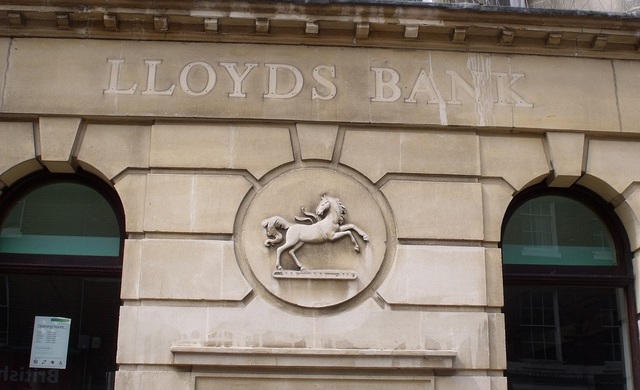The integration of cryptocurrency into messaging apps is a transformative global trend, significantly reshaping financial interactions. The United Kingdom, known for its robust financial sector, is at the forefront of this evolution. However, the UK’s approach to regulating this rapidly changing sector presents unique challenges and opportunities. As messaging apps increasingly incorporate crypto functionalities, they are set to revolutionize how users in the UK interact with money. Yet, this potential is tempered by a complex regulatory landscape that both encourages innovation and demands compliance.

Telegram’s Crypto Wallet Suspension in the UK
A recent development in this space is Telegram’s decision to temporarily suspend its in-app crypto wallet for UK residents. This move is part of the company’s efforts to register with the UK’s Financial Conduct Authority (FCA) as a crypto asset provider. During this suspension period, users can transfer their funds to external wallets without incurring fees. This decision highlights the regulatory challenges faced by companies operating within the UK’s crypto space and highlights the importance of adhering to local financial regulations.
Once Telegram’s wallet services resume in the UK, users will regain access to a variety of features and activities using their crypto wallets. This refers to various games, as well as to play slots in telegram. These games are part of a growing trend where messaging apps incorporate gaming and gambling functionalities through bots within the app, allowing users to engage in casino-style games such as blackjack, roulette, and poker using cryptocurrencies. Users can deposit and withdraw cryptocurrencies without needing to register an account, which enhances privacy and security.
In addition to gaming, Telegram’s integration with crypto allows users to perform various financial transactions, manage digital assets, and even participate in decentralized finance (DeFi) activities. This integration is part of a broader movement towards incorporating blockchain technology into everyday applications, providing users with more control and flexibility over their digital finances.
Growing Demand for Blockchain Messaging Apps
In the UK, there is a growing demand for blockchain messaging apps driven by increasing privacy concerns and the need for secure communication channels. These apps offer decentralized end-to-end encryption, ensuring that messages cannot be intercepted or recorded by third parties. This security feature is particularly appealing in an era where data privacy is paramount.
The market for blockchain messaging apps is expected to grow significantly, with projections indicating a compound annual growth rate (CAGR) of 35.2% over the next decade. This growth is fueled by factors such as increased smartphone penetration and internet usage, which drive more users to online messaging platforms. As these apps evolve, they are likely to incorporate emerging technologies like non-fungible tokens (NFTs) and decentralized finance (DeFi), further expanding their capabilities.
The Digital Pound, A Complement to Crypto?
As cryptocurrencies gain traction, the concept of a digital pound has emerged as a potential complement rather than a competitor. Proposed by the Bank of England, a digital pound would function like digital cash, issued directly by the central bank and backed by the government. Unlike cryptocurrencies, which are privately issued and can be volatile, a digital pound would offer stability and trust similar to traditional currency.
The introduction of a digital pound would not replace cash but provide an additional payment option alongside it. This initiative aims to modernize payment systems while ensuring user privacy and security. The Bank of England emphasizes that neither it nor the government would control how individuals spend their digital pounds, addressing concerns about financial autonomy and privacy.
Impact on Traditional Finance and Regulatory Framework
The integration of cryptocurrencies into messaging apps presents both opportunities and challenges for traditional finance systems. On one hand, it offers faster and cheaper alternatives to traditional banking methods, potentially disrupting sectors like remittances and mobile payments. On the other hand, it necessitates robust regulatory frameworks to ensure consumer protection and financial stability.
In Western Europe, including the UK, stablecoins have gained prominence as they offer a bridge between fiat currencies and digital assets. The European Union’s Markets in Crypto-Assets Regulation (MiCA) aims to provide regulatory clarity across member states, impacting how crypto-asset service providers operate. While MiCA’s full effects are yet to be felt, its implementation could influence similar regulatory developments in the UK.
Mainstream Adoption and Innovation
As blockchain messaging apps continue to evolve, they are likely to incorporate emerging technologies like NFTs and DeFi, further expanding their capabilities. This evolution could lead to the widespread adoption of crypto-enabled payments within messaging platforms.
For users in the UK, this means greater convenience and control over personal finances as managing money becomes as simple as sending a text message. However, users must remain vigilant about security practices and stay informed about market volatility and regulatory changes.
While blockchain messaging apps offer exciting possibilities for financial interactions in the UK, navigating this new terrain requires careful consideration of both opportunities and risks. A clear regulatory framework will be essential in ensuring that these innovations can thrive while maintaining market integrity and consumer protection.
Image: Free Photo | Close up hand holding smartphone


 Hot Features
Hot Features









